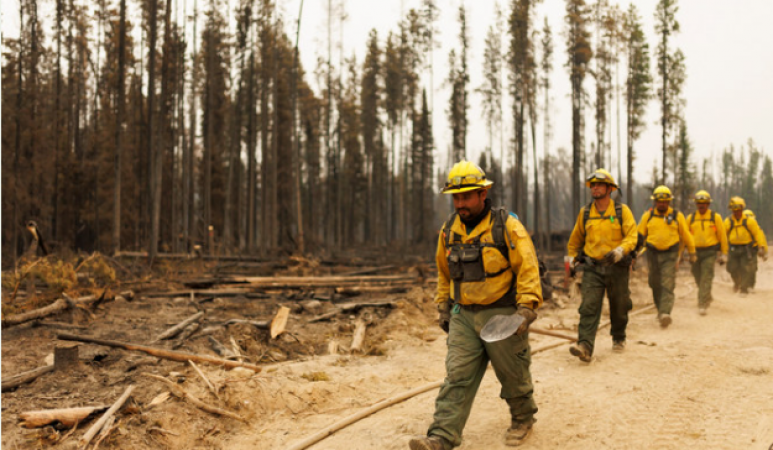
Alberta: Carrol Johnston, who had been forced to flee her community in northern Alberta two months prior, was counting her blessings as she stood on the deserted site where her home had been destroyed.
Although her cherished cat, Missy, didn't survive the "fireball" that fell on the house in early May, her family managed to escape without injury. The blackened May Day tree planted in memory of her longtime partner is sprouting new shoots, and peony bushes that belonged to her late mother have also survived.
These are encouraging signs as she gets ready to start over in the East Prairie Métis Settlement, about 385 kilometers northwest of Edmonton.
Also Read: 60,000 tons of grain are obliterated by Russian missile strikes in the Black Sea
Johnston, 72, who lived in a house with her son and daughter-in-law, said, "I just can't leave." "Why would I want to leave such lovely memories?" you might ask.
From Nova Scotia to British Columbia, Indigenous communities are being forced to relocate due to the worst wildfire season in Canadian history, which is also destroying homes and forests and endangering crucial cultural pursuits like native plant gathering and hunting.
Also Read: On the eve of the Women's World Cup soccer tournament, a gunman from New Zealand kills two people
More than 110,00 square kilometers of the country have already been scorched by countless fires. On Tuesday, the Canadian Interagency Forest Fire Centre's website listed nearly 900 active fires, the majority of them out of control.
On Indigenous lands, fires aren't unusual, but they are now happening over such a large area that many more people are experiencing them at once — and some for the first time. This is fueling concerns about what a hotter, drier future will bring, especially to communities where traditions are strong.
"I've never seen anything like this," said Raymond Supernault, chairman of the East Prairie Métis Settlement, where the first wildfire there in more than 60 years destroyed more than 85% of the 334 square kilometer settlement.
The intense, quickly spreading fire that forced the evacuation of almost 300 people and decimated forested land destroyed 14 houses and 60 other buildings.
"In a split second, we lost so much... It was disastrous. I can't stress that enough, Supernault said, adding that he hasn't seen any moose or elk since the fire, which are both significant food sources.
For groceries, "we don't just jump in the car and go to the IGA," according to Supernault. "We go into the bush."